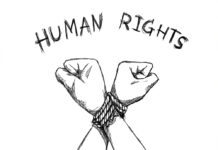| Law recognizes capacity to act of all adults.
12-1
[Include in revised indicators:
Expression of will
Responsibility] |
Yes in principle. Capacity to enjoy rights is guaranteed to all people and full capacity to act is guaranteed to everyone over eighteen, including persons with disabilities (PWD) irrespective of their use or need for support or reasonable accommodations to express will.
However, capacity to act can be restricted by law on grounds other than disability, see under 12-2 below.
CC * Art. 3 and 42
*See also CC Art 141
Expression of will can be explicit or tacit — explicit includes all means including with support or reasonable accommodation; tacit is inferred undoubtedly from attitude or repeated conduct; no tacit expression when law requires explicit.
*And see CC Art 1976-A
Person using support is responsible for decisions; except in coma decisions with intent or fault.
LD 1384 repeals CC 1975 and 1976 which had provided for responsibility of ‘incapable’ if acting with discernment but not if acting without discernment. |
| No restrictions can be placed on an adult’s capacity to act.
12-2
[Include in revised indicators:
Disability-based
Other
All aspects of life:
Marriage
Parental relationships
Voting
Health
Financial
Legal proceedings] |
Yes re: no restriction based on disability or ‘discernment’.
LD ** 1384 repealed previous CC Art 43 para 2 absolute incapacity of those who ‘lack discernment’ and Art 44 paras 2 and 3 relative incapacity of ‘mentally retarded persons’ (used against persons with intellectual disabilities) and ‘those who suffer from mental deterioration that prevents them from expressing their will’ (used against persons with psychosocial disabilities and those with dementia). Law 29973 had repealed previous CC Art 43 para 3 absolute incapacity of deaf, blind and deafblind people who ‘couldn’t express their will in undoubtable manner.’
LD 1384 repeals provisions for appointment of guardians of people with psychosocial or intellectual disabilities — CC 569-572 including 570 which named directors of asylums as guardians of inmates; also repeals 578 which provided for institutionalization of ‘incapable’ person with judicial authorization; also related to interdiction 580-582 and 592; 612 on rehabilitation from guardianship by judicial determination and 614 limiting term of appointment.
No — there remain restrictions on people with drug and alcohol addictions and those who waste or badly manage their property, as well as those who incur civil interdiction as penalty for a crime, and those in coma who have not previously designated support.
CC Art. 43 and 44 (there are numerous other provisions referring to curatorship, interdiction, restrictions and proceedings relevant to the persons whose legal capacity is still restricted; I omit them here).
*LD 1384 repeals former CC Art 241 para 3, restriction on marriage by people with psychosocial disabilities; Law 29973 had repealed former para 4 similar restriction on deaf, blind and deafblind people; LD 1384 repeals CC Art 274 paras 1 and 2 nullifying marriage by persons with psychosocial disabilities (PWPSD) and deaf and blind and deafblind people.
*LD 1384 repeals CC Art 687 para 3 testamentary incapacity of those who ‘lack lucidity’ at the time; LDN***para 56a prohibiting deaf and blind and ‘mute’ people from being witnesses before notaries.
*Law 29973 had repealed CC Arts 693 and 694 prescribing particular testamentary formalities for blind and deaf people, and 703 para 2 prohibiting blind and deaf people from being testamentary witnesses.
*LD 1384 repeals CC 228, 229 related to financial transactions of ‘incapable’ people.
*LD 1384 repeals CC 580 and 592 related to guardianship of children of ‘incapable’ person. |
| Free and informed consent can only be given by the person concerned and not by a third party.
12-3 |
Yes except for emergency situations.
Health Law 26842 Art 4 and 15 and MH amendment law 29889 Art 11 both require free and informed consent except in ‘emergency’ — see further below under 12-7.
Provision in 26842 Art 4 that refers to judicial substitute decision-making for people who were ‘absolutely’ or ‘relatively’ incapable under repealed provisions of CC is ineffectual due to the repeal.
CC Art. 42 guarantees legal capacity in ‘all aspects of life’.
LD 1384 repealed CC Art 578 on placement of ‘incapable person’ in institutions which included mental health facilities. |
| Notaries, courts, health care providers, financial services and other actors involved in the exercise of legal capacity must ensure that their processes are accessible, offer and provide accommodations, and cooperate with individuals’ chosen support arrangements.
12-4 |
Yes re: legal proceedings and notaries.
CPC**** 119-A
Accessibility of proceedings, right to reasonable accommodations and procedural accommodations to facilitate participation.
CPC 845, judge has duty to make modifications, adjustments and accommodations for PWD to express will in proceedings for support/safeguards.
LDN Art 16
Provision of accessibility measures, reasonable accommodations and safeguards the person requires.
LDN Art 30
Sign language interpreter for deaf and guide-interpreter for deafblind people.
LDN Art 54
Introduction to instruments needs to indicate intervention of support, and also reasonable accommodations and safeguards required by a PWD and ‘indication of extending the instrument with or without minutes’.
*Implementing regulations should clarify safeguards are not limited to PWD, and also reasonable accommodation should not require any formal designation as PWD. |
| Mechanisms exist to facilitate the creation of arrangements for support in exercising legal capacity that respect the autonomy, will and preferences of the person concerned.
12-5 |
Yes – CC Art 45-B.
PWD who can express will can designate supports notarially or judicially; those who cannot express will can have judge designate supports. People in coma with previously designated support keep it; without support can have judge designate under best interpretation standard — Art 659-E.
*not only PWD, and safeguards can be designated along with support
CC 659-A
*Adults can designate before a notary future supports — who should and should not be supporters; form, scope, duration and guidelines; moment or circumstances in which support becomes effective.
CC 659-F
*CPC Articles 841-847 outline procedure for application for support before a notary or judge. (‘Application’ differs from ‘designation’; ‘designation’ is preferable to indicate control by the person concerned. Clarify in implementing regulations.)
Articles 846 and 847 contemplate representation as the rule (‘to which legal acts [supporters] are limited’) and should be brought in line with 659-B, C, E and F through implementing regulations.
*People who are addicted to alcohol and drugs can designate supports if they have a disability certificate.
LD 1384 Third Supplementary Provision |
| · Everyone who desires support in exercising legal capacity is entitled to have such arrangement facilitated at no cost.
12-5-1 |
? Cost is not mentioned, but everyone is entitled to designate supports or can have judge designate them. CC 45-B, 659-A, C, D, E.
*Affordability of notarial and judicial designations should be addressed in implementing regulations.
*Also problematic:
CPC 844 applicant with a disability requesting support needs to provide reasons for application and disability certificate. (This is prejudicial and unnecessary.)
*CPC 841-847 appear to contemplate judicial proceeding more than notarial; 845 mentions role of judge in particular. Make sure that notarial designation is addressed and that both processes are user-friendly. |
| · Outreach is conducted to offer support, at all times with respect for the person’s autonomy, will and preferences.
12-5-2 |
Not mentioned; in the case of people ‘who cannot express their will,’ another person can make application for them to receive support.
CC 659-E, CPC 843.
|
| · Support arrangements can only be created, maintained and ended based on the will of the person concerned.
12-5-3 |
Yes, generally — CC 659-A and D for general case, and 659-E for best interpretation in coma and for PWD from whom no expression of will is obtained after having made real, considerable and persistent efforts and having provided them with accessibility and reasonable accommodation. (Best interpretation subject to those guidelines is approximation in this extreme situation but see below under 12-8-3 for concern.)
CPC 842 request initiated by person concerned; 843 initiated by any person in accordance with 659-E for coma or person unable to express will.
CPC 845 judge has a duty to make all modifications, adjustments and accommodations in proceedings for support and safeguards to guarantee expression of the will of PWD. |
| · Accommodations and support are defined by the person and acceptable to the person.
12-5-4 |
Yes – CC Art 659-A.
A person of legal age can designate supports and safeguards they consider appropriate to contribute to their capacity to act.
659-C
The person determines form, identity, scope, duration and number of supports.
*659-B definition of support
Supports are freely chosen to facilitate exercise of rights including support in communication, understanding legal acts and their consequences, expression and interpretation of will. Best interpretation applies in the case of interpretation of will.
Support does not involve representation unless explicitly established by person designating or by judge in 659-E. |
| Safeguards are designed as follows:
12-6 |
Not specifically as suggested in these indicators but more general:
CC 659-G
Measures to guarantee respect for rights, will and preferences of the person receiving support, prevent undue influence by supporter(s), avoiding harm to the person or putting the rights of the person at risk.
(Caution, make sure that ‘avoiding harm’ and ‘putting rights at risk’ does not become a ‘best interest’ standard targeting particular individuals as less capable of making decisions. Risk of that is greatest in 659-E but even when person requests, can promote paternalism and self-stigmatization.
Also; safeguards are said for be ‘for adequate execution of supports’ but in CC 45-B, 659-A, LDN 16 and 54 safeguards appear to stand alone; this should be clarified. If it is only safeguards on supports, less concern about devolving to ‘best interest’ standard.)
*Deadline for review of supports is mandatory in 659-G; others to be designated by the person receiving support or by judge in 659-E. In 659-A and CPC 847, safeguards appear to be entirely optional; clarify. |
| · to educate rights-holders and duty-bearers about decision-making rights, including duty to respect the person’s autonomy, will and preferences.
12-6-1 |
Not specified as educational, but does mention respect for rights, will and preferences; maybe education/promotion — process-oriented — would come in implementing regulations? |
| · to provide advocacy support and redress against the failure of any duty bearer to respect an individual’s decision-making, and/or against the denial, abuse or malfunctioning of any processes or mechanisms related to the exercise of legal capacity, including support arrangements, facilitation mechanisms, outreach, and accommodations.
12-6-2 |
Judge performs hearings on supporter not acting in accordance with will and preferences, CC 659-G. (Is this necessary to give requisite legal determination on rights infringement, or does it pose an obstacle if PWD are intimidated before a judge?)
*Possibly implementing regulations could provide for advocacy or ombudsperson to help with complaints or dissatisfaction with support arrangements. |
| First responders, health care providers, and other relevant actors must respect the decision-making of adults at all times, including in crisis situations and emergencies.
12-7 |
No.
Health Law 26842 Art 4 and MH amendment law 29889 Art 11 allow treatment without consent in emergency.
*Suggest 659-E best interpretation standard subject to adjustment for urgent time frame, and 141 expression of will as the basic parameters. However, the concept of emergency needs to be reconsidered in mental health context and reframed as psychosocial crisis for which medical concept of emergency is incorrect. No psychotropic drugs should be given in these situations absent explicit consent; neuroleptics should require heightened information and safeguard protocols. |
| When, after significant effort, it is not feasible to determine the person’s will and preferences, a best interpretation of will and preferences will be made.
12-8 |
Yes – CC 659-E.
Judge can designate supports based on best interpretation for person in coma with no previously designated support and for PWD from whom no expression of will is obtained after having made real, considerable and persistent efforts and having provided them with accessibility and reasonable accommodation, and when supports are necessary to exercise their rights.
Takes into account relationship of cohabitation, trust, care or kinship; sets term, scope and responsibilities of support.
Must carry out best possible interpretation of person’s will and preferences and consider life trajectory.
CPC 845 judge has duty to make all modifications, adjustments and accommodations in proceeding for support/safeguards to guarantee expression of the will of PWD. (This should apply to proceedings begun under 659-E as well as 659-A, and 659-E should be ended or converted if the person expresses will.)
*Best interpretation is also required when a person designates support for the purpose of interpreting their will; CC 659-B.
*659-B also amplifies on what best interpretation requires:
Taking into account life trajectory, previous expression of will in similar contexts, information provided by trusted people of the assisted person, their preferences, and any other consideration relevant to specific case. |
| · Determination of will and preferences accepts all forms of intentional communication.
12-8-1 |
Yes – CC 141.
Expression of will can be explicit or tacit — explicit includes all means including with support or reasonable accommodation; tacit is inferred undoubtedly from attitude or repeated conduct; no tacit expression when law requires explicit. |
| · Significant effort includes giving effect to accommodations and support.
12-8-2 |
Yes – CC 659-E. |
| · Interpretation requires ongoing interaction and is never applied in opposition to intentional communication.
12-8-3 |
Unclear.
No explicit provision that effective communication should still be pursued and that ‘best interpretation’ ends when the person expresses her will by any means as in 141.
*659-B requires that interpretation of person’s will takes into account life trajectory, previous expression of will in similar contexts, information provided by trusted people of the assisted person, their preferences, and any other consideration relevant to specific case.
(‘Preferences’ implies ongoing communication. But 1) unclear if this applies to 659-E, it should; 2) it introduces a distinction between will and preferences that is not defined and may be problematic; 3) when support is judicially designated, the judge sets term, scope and responsibilities, so there is apparently a need to appear before judge to, in effect, ‘get your legal capacity back’ i.e. to end the support.) |
| Best interests principle is not applied to adults, for reasons of protection, security, or otherwise.
12-9 |
Not ascertained; according to informant, ‘best interest’ or coercive paternalistic intervention still used only for children and drug users (and for people with psychosocial disabilities under ‘emergency’ mental health provision, see under 12-3 and 12-7, and remaining provisions for criminal non-responsibility and related security measures that were beyond the scope of the Civil Code reform). |
| Effective remedies are provided for failure to respect legal capacity and decision-making, and for denial of support or accommodations or inadequate access to support and accommodations.
12-10 |
CC 659-G
Judge hears complaints of supporters not acting in accordance with will and preferences.
LD 1384 second supplementary provision:
Any person can request the reversal of interdiction of a PWD by the designation of supports and safeguards. (*Need to provide also for those who don’t want supports or safeguards.)
*LD 1384 first transitional provision transforms previous interdictions of PWD and ongoing applications for interdictions of PWD into applications for support and safeguards. (*Again, need to provide for those who don’t want support or safeguards.)
*LD 1384 second transitional provision requires administrative procedures of public and private entities to be adapted to remove any requirement for interdiction they may have.
*Are there other legal remedies that exist or may need to be created?
|
| Process:
12-11 |
|
| · Reforms of law, policy, and practices are enacted to abolish all forms of substitute decision-making and to implement and enforce universal adult legal capacity and access to support that respects the person’s autonomy, will and preferences.
12-11-1 |
Yes partially, significant reform through LD 1384 and Law 29973 on rights of PWD which set up commission to revise civil code. Need to reform Health Law articles 4 and 11, and Criminal Procedure to address capacity to be held responsible and right to accommodations and support in proceedings for that purpose.
|
| · All measures are designed, implemented, and assessed in close collaboration with users and survivors of psychiatry and persons with psychosocial disabilities, and their representative organizations, who are actively involved in setting the agenda, training and briefing government personnel, and serving in an expert capacity throughout the process.
12-11-2 |
Yes, PWPSD and their organizations along with other DPOS participated and served in expert capacity in drafting commission and other work leading to LD 1384, and Law 29973. |















We are going backwards with this in the UK. They want to make carehome owners/managers pay for independent tests for capacity… clear conflict of interest. And the feeling I get is to continue to just abduct (no sectioning process…too costly time consuming and they can’t be bothered with all this legal business ) people and put them in ‘supported housing’ which is in truth a MH Hospital with coercive/forced neurotoxic drugging and infantalising support workers. And to just normalise all this in legislation.
Report comment
While legal nuts & bolts are not most people’s cup of tea, hence they shy away from articles such as this, Tina Minkowitz has for years been steadily and methodically making what may ultimately prove to be some of the most important contributions of all to a psychiatry-free world. And this does seem like a breakthrough, so props to all involved, and carry on!
Report comment